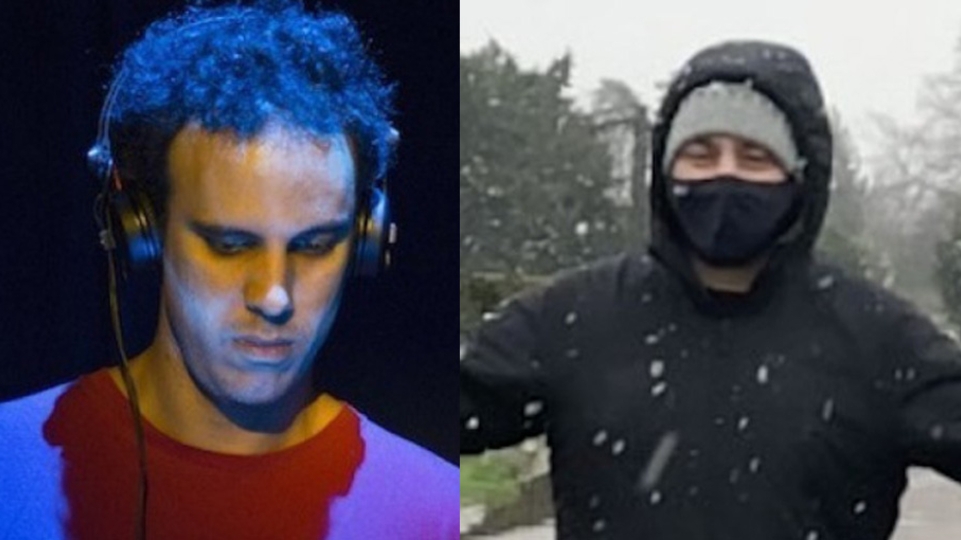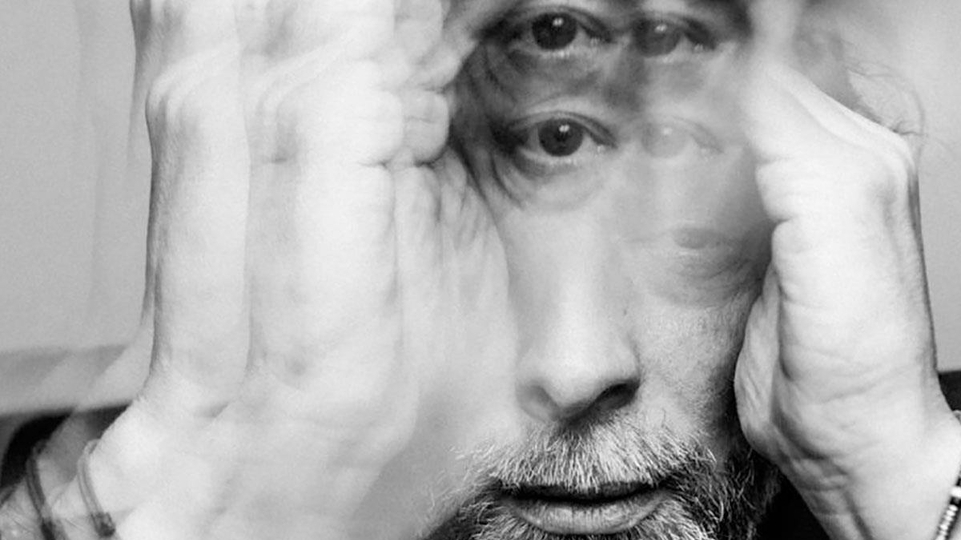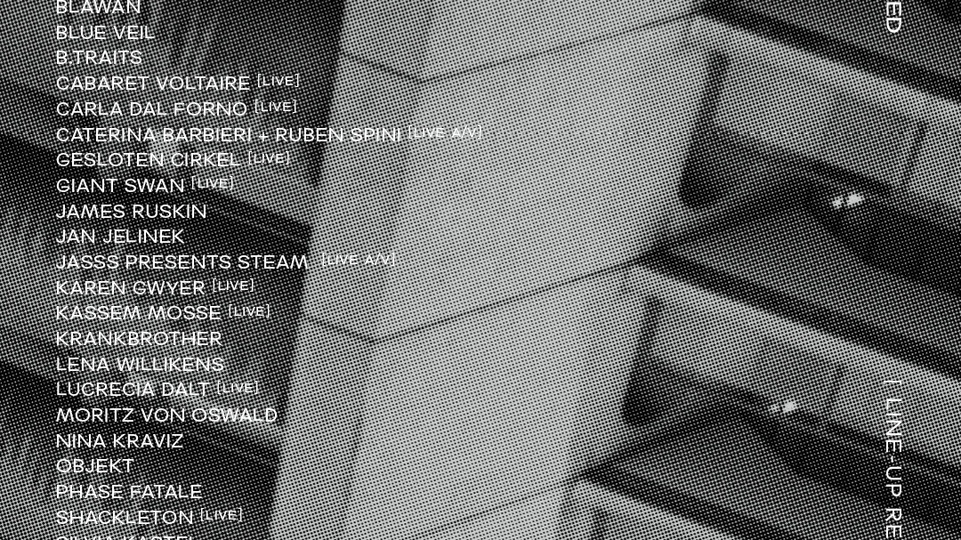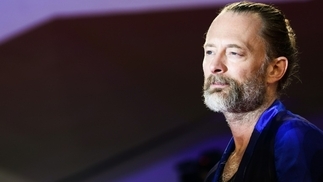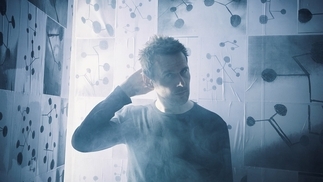
Clark: singing a different song
On his latest album, ‘Sus Dog’, Clark has put his singing voice front and centre, mixing his unearthly electronics with compelling songs. Ben Murphy talks to him about maintaining your humanity in a time of artificial intelligence, working with Thom Yorke from Radiohead, and why making music is a form of therapy
“Art becomes more valuable the less easy it is for AI to make a carbon copy of it in two seconds,” says Clark, discussing the direction of his new album. “Singing and writing words, it’s just a very direct way to instantly have a thumbprint on what you do that isn’t easily imitated.”
It’s not the first time Chris Clark has sung on his records, but ‘Sus Dog’ (released this Friday 26th May on his Throttle label) is his most vocal-led offering yet. Bar a couple of instrumental pieces, Clark’s voice is front and centre throughout the record, providing a human counterpoint to its convergence of skewed synths, lysergic electronics and live instrumentation. Though it’s otherworldly and experimental, ‘Sus Dog’ is a collection of songs — and maybe the closest this creator of offbeat electronica has ever got to pop. For him, singing and songwriting is one way to stand out and be different at a time when the increased sophistication of artificial intelligence threatens human creativity.
“There’s been vocals on my records for over a decade, but it’s the first one where it’s a bunch of songs, weird songs as they may be,” says Clark. “People can always say that’s a really obvious thing to do, to write a song, but the point is it’s always going to be unique, because if you write unique words, if you sing unique melodies, it’s harder to replicate. The most primitive form ever is song, that’s what people were doing when we didn’t even have instruments. Fusing that with cutting-edge technology, that’s a very magical zone of contrasts.”
DJ Mag is talking to Chris Clark one spring morning over Zoom. He’s at home in Brighton, wearing a buttoned-up pale blue shirt, his hair trimmed short, and as ever, he’s bright, friendly and engaged. Each record he makes is more than just a collection of tracks; there’s a reason behind them, something driving his art, ever since his classic debut album for Warp, ‘Clarence Park’, was released in 2001. With a musical career stretching over more than 20 years, Clark has made everything from fiery rave-ready techno to soundtracks for movies and TV, tapping into unearthly IDM and hip-hop adjacent rhythms, and influencing artists like Arca and Hudson Mohawke along the way.
Whereas his last record, ‘Playground In A Lake’, found him combining neo-classical piano pieces and choral voices with his characteristic strange melodies, and meditating on climate change and mortality, ‘Sus Dog’ is more expansive and synth-driven. The essential humanity of vocals, and how they interact with more synthetic forms, is a key element, but other themes explored are bittersweet memories, social anxiety, how places change over long periods of time, and bullying. Album highlight ‘Dolgoch Tape’ has a haunting synth line that flickers like a psychedelic zoetrope, a tune that was written in a burst of creativity on the train, reminiscing on a psychedelic experience from years ago.


“We didn’t clash at all. Thom [Yorke] is a super lovely guy, and there’d always be a disclaimer saying, ‘Feel free to fucking ignore me’. There was no stamping his foot and saying it has to be this way at all, it was more like suggestions that I could keep or reject.”
“Dolgoch is a waterfall in Wales, and I did some magic mushrooms there about 15 years ago with some friends, on someone’s 30th birthday, so it just takes me back, it’s quite a nostalgic track,” says Clark. “I don’t think the album is that nostalgic at all, but that track is quite melancholy but also euphoric, and recorded on tape, so imaginatively called ‘Dolgoch Tape’.
‘Town Crank’ thrums with electrical crackles, detuned synth riffs and pummelling drums, while ‘Wedding’ is halfway beautiful, halfway dark and tense, with circuitous electronics and bristling bass prods. ‘Forest’ is a blur of machine fuzz that gives way to a final vocal coda, imagining how the streets we walk down were once patches of wilderness. ‘Bully’, meanwhile, is one of Clark’s favourites on the record, inspired by everything from Thundercat to dream-pop band Beach House, its lyrics like a pep talk to a kid who’s being picked on.
“It’s not like, ‘Hey kid, let me tell you how it is’, in a cheesy paternal way, but because the melodies and harmonies are quite sour, and the sounds are quite hard and aggressive but also soft, you’re combining this sentiment that could be awful and offsetting it with all these other elements that give it complexity. That was a weird one; I remember writing the beat and I loved it, but it sounded like there was no funk in it at all, so I imagined there was a Thundercat bassline on it, and when that happened... you can sit on a piece for six months, and it will be that one thing that’s missing. When I managed to get a bit of swagger into it, it’s like, ‘Yeah, it’s finished’.”
A thread that runs through much of Clark’s music — and especially ‘Sus Dog’ — is a sense of the inbetween: of mixed emotions, and melodies that can be melancholy and joyful at once. “Yeah, exactly, you can’t put your finger on it, it’s sort of liminal,” he says. He points to My Bloody Valentine’s Kevin Shields as a master of this arcane art, singling out his unreleased track ‘Lalala Human Steps’ as a recent source of inspiration. “His music is feral. It’s that quality in music where you feel like it’s telling you something cryptic, which is beyond language. That’s the coin of the realm for me.”
Several guests contributed to the creation of ‘Sus Dog’. In addition to Richard Spaven’s drums throughout the record, and Rakhi Singh’s violin on several songs, Anika adds her spectral vocals to the album’s title track, sounding like a ghostly Nico wrapped in enveloping waves of reverb. On ‘Medicine’, meanwhile, Radiohead’s Thom Yorke duets with Clark, adding another dimension to the song’s jazzy drums, wriggling analogue bass and meandering electronics. So impressed was Yorke when he heard one of the first tracks Clark wrote for the album that he offered to come on board as executive producer for the whole record.
“I’ve been into what [Clark] does for years, and I ended up being a kind of backseat driver as he pieced all the oddness of it together, which was fascinating,” Yorke says of the record. “I wasn’t surprised to discover he came at singing and words through another door completely, which to me was the most interesting and exciting part.”
“We didn’t clash at all,” adds Clark. “Thom is a super lovely guy, and there’d always be a disclaimer saying, ‘Feel free to fucking ignore me’. There was no stamping his foot and saying it has to be this way at all, it was more like suggestions that I could keep or reject. Some of them I rejected and some of them, often it was just, ‘Don’t touch it. Don’t do anything else to it, leave it’.”
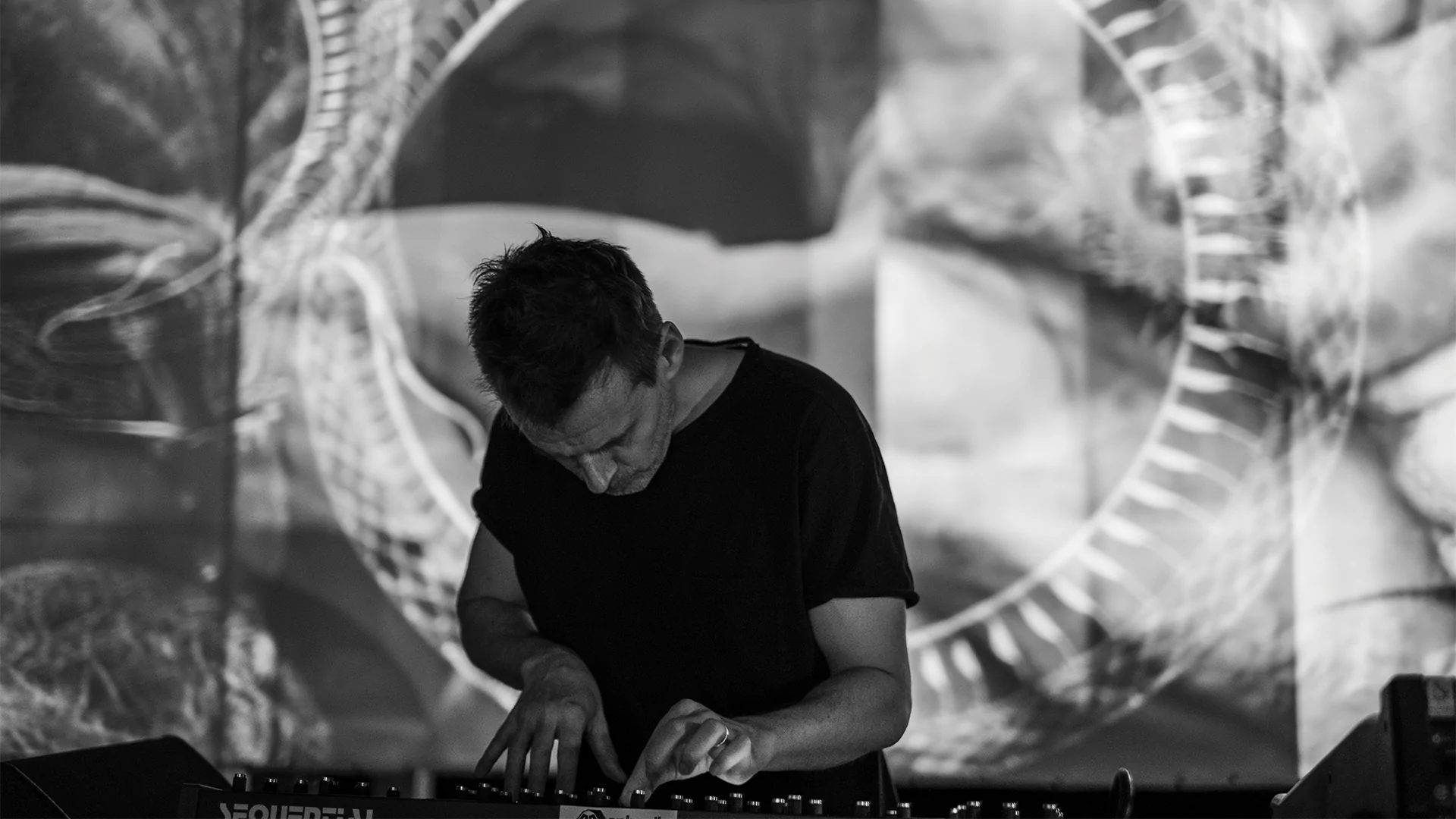
“Music to me had this forbidden fruit element where I’m super chuffed [to be doing it] and I’ve never taken it for granted. I’ve never had that thing where music is such a burden, a tortured artist, it’s just the opposite of that — it’s sort of saved me in many ways.”
Like Yorke, Clark is never afraid to confront difficult themes. Asked about the track ‘Ladder’, where the words concern “living on a ladder stuck between two floors”, and a clock ticks in the background, Clark says drily, “It could just be a birth/death metaphor, couldn’t it?” It’s another commentary on mortality, something he touched on before with previous record ‘Playground In A Lake’; for Clark, music is a form of therapy, something that allows him to exorcise his demons and stay sane.
“I’m lower middle-class and it wasn’t really an option to do music when I was a kid,” he says. “So music to me had this forbidden fruit element where I’m super chuffed [to be doing it] and I’ve never taken it for granted. I’ve never had that thing where music is such a burden, a tortured artist, it’s just the opposite of that — it’s sort of saved me in many ways.”
“All of my lyrics come out in almost dreamlike subconscious states where I don’t know what they mean and there’s no self consciousness with it at all,” he continues. “It’s completely pure. Then there’s lots of stuff that you write around that, where you feel like you’re putting in the grind work of writing stuff down and you know that it probably won’t work and some of it feels forced. But it’s a way to get to the excavation of the good stuff. I’ve come to see my self-doubt as a weaponised form of being really ridiculously motivated, ’cause I question everything and I’m never really satisfied with a lot of what I do.”
Clark considers music to be something vital — to be cherished and properly tuned into, not just the backdrop to a TV programme or the content of a themed playlist. He’s excited about taking the new songs of ‘Sus Dog’ into a live environment, somewhere where he feels they can be enjoyed in a visceral sense.
“I’ve kind of had it up to here with music as this non-primary thing that accompanies something in a Netflix show for a tension scene,” says Clark, “as just one thing among many other things on your phone. And so the idea of gigs has become really fun — it’s just music, it’s just people. You can hear songs loud, you’re not just listening to it on a phone speaker or on laptop speakers. It’s just a pure sonic event. That’s felt really inspiring, but it’s only really come to light now, ’cause I’m preparing for the live show and making all these different versions of tracks.”
Though he harnesses technology through his use of electronics, you can sense Clark’s disquiet at how it’s influencing us and impacting on music in negative ways. His use of vocals and live instruments are partly an exercise in accepting the imperfect, at a time when the pristine is highly prized.
“We live in this age of YouTube tutorials of everything, ‘Oh, you wanna make this type of music? These are the steps you need to take in Ableton, this is an interview with this classic person from this era’. It’s professionalism that is actually stifling the spirit in music, but I want it to feel like, ‘Yeah, it is a bit rough, not overly finished’. That’s got an energy. That’s what I’m passionately trying to cling onto, that freshness. That does mean embracing imperfections, and being ok with that.”
Looking ahead, Clark has another movie soundtrack in the works for a film called In Camera. But his core musical mission remains the same. “If one person completely gets it and has a whale of a time listening to something you’ve made, then that’s the best thing ever, that’s amazing. I’m not cynical about that, I feel like that’s the point of it all.”
